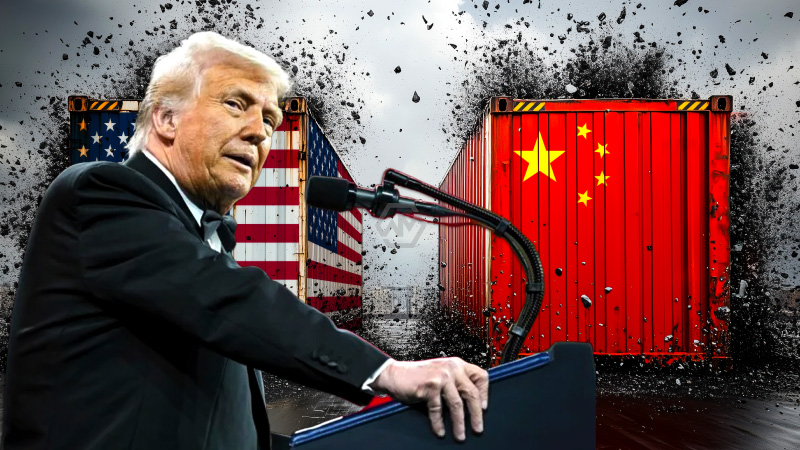- Trump suspends tariffs on India, EU, and 60 other countries for 90 days; China excluded.
- China blacklists 12 US firms and maintains 84% retaliatory tariffs.
- Financial market turmoil influenced the White House decision to delay tariffs.
President Trump’s surprise announcement of a 90-day pause on new tariffs has provided temporary relief to dozens of trading partners, including India and the European Union.
However, China was specifically excluded from this pause. Instead, Trump’s administration enforced a steep 125% tariff on Chinese imports, escalating a long-brewing trade war.
China Hits Back as Trump Targets Beijing With Full Tariff Hike, Spares India and Allies
China has taken sharp retaliatory action by blacklisting 12 American firms and restricting exports of dual-use technology to them. These measures are intended to signal Beijing’s resistance to what it sees as unilateral economic aggression from the United States. This follows the full imposition of Trump’s 125% tariff hike on Chinese goods.
Commerce Minister Piyush Goyal, responding to the developments, reassured Indian exporters that the government is pursuing trade talks with the US cautiously and strategically. He emphasized that India will not rush into any deal. This highlights a balanced approach to protect domestic interests while engaging with global markets.
Meanwhile, President Trump’s decision to pause tariffs on most trading partners stemmed largely from internal economic warnings. A fast decline in US Treasury bond markets reportedly triggered alarm bells in the White House. This prompted Treasury Secretary Scott Bessent to personally advise Trump to delay further economic shocks.
While other nations, including Vietnam, are moving forward with bilateral negotiations with the US, China stands isolated alongside Canada as the only countries to have launched retaliatory tariffs. Analysts from Citi warn that without a meaningful diplomatic thaw, broader global economic instability is inevitable. Investor sentiment is likely to suffer.
With tensions between the US and China escalating and most other nations seeking compromise, the global trade landscape teeters on uncertainty. The next steps from both Trump and Xi Jinping could determine whether this standoff cools or spirals into deeper economic fragmentation.
“Pressure, threats, blackmail not the right way to deal.” — Chinese government response to US tariff hikes



